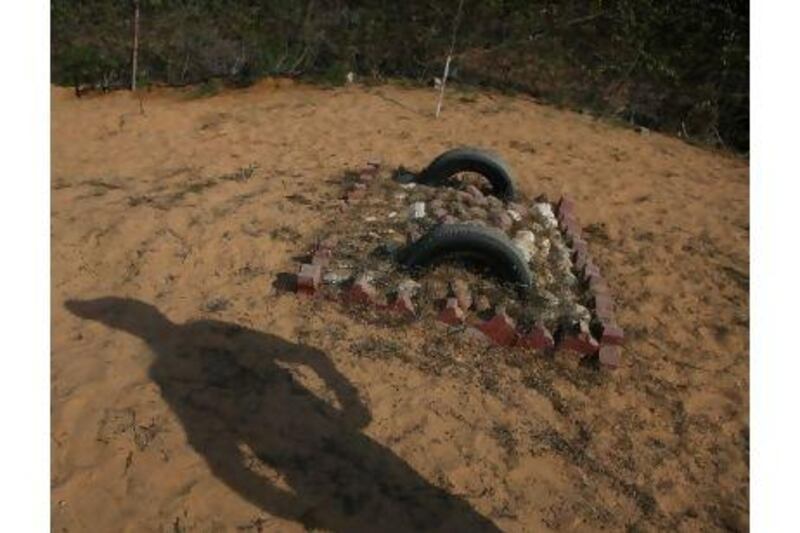ABU DHABI // Raghad Auttabashi stops whenever she spots an animal that has been hit by a car on the road.
"If they are dead, then I move them out of the way of the moving traffic with newspaper and a plastic bag," said Ms Auttashi, one of the founders of Abu Dhabi's al Rahma Society of the UAE, which focuses on the welfare of animals. "But if they are still alive and struggling, then I take them to the vet to be saved or put to sleep so they don't suffer."
In addition to paying to cremate an animal, she pays the Dh100 it costs to euthanise a creature that cannot be saved.
"Even if you don't like animals, there is no need to disrespect them by driving over their bodies," she said. "Just be a bit more considerate on the road."
In caring for animals, either alive or after they die, Ms Auttabashi is also doing right by her religion, according to two rulings from the General Authority of Islamic Affairs and Endowments (Awqaf).
As a general rule, Islamic law considers it desirable for an animal, pet or otherwise, to be buried, and a fatwa late last year addressed the issue of road kill directly.
"If you happen to come across road kill, or an animal or bird that died of natural causes, then take a moment and bury it," said the fatwa, pronounced by a mufti at the Fatwa centre.
Another fatwa last week reminded believers of the "great sin" of killing animals on the road. According to the ruling, "if an animal is killed by accident, then charity through donations should be given out as repentance".
The fatwa placed responsibility on drivers and warned them to be mindful of wildlife when travelling the country's roads. It suggested: "If there is an animal crossing the road, then stop and let it pass in peace."
But if the animal is killed "with intention", then the act itself is considered haram and a "great sin".
The fatwa narrated a Hadith in which the Prophet said that a woman "entered hell because of a cat" after she tormented it by locking it up and not feeding it.
For Lt Col Khaled al Merri, the head of the Ras al Khaimah canine unit, there was never a question of what to do when one of his police dogs died in 2002.
Dinah, a black Labrador and one of RAK's first police dogs, was buried near her former quarters in a tomb clearly marked with tyres and bricks.
"It is out of respect for a soul that shared its life with us," said Lt Col al Merri.
He visits the grave every day when he makes his way to his office. "Nothing wrong with remembering a best friend," he said.
The mufti who issued the fatwa, who is not allowed to be named, said that Muslims regularly ask about their relationship with animals, particularly their pets.
His own son buried his pet bird in the back yard, marking it with a circle of pebbles. And the youngster becomes emotional whenever he passes by the spot, said the mufti.
"There is nothing wrong with this," he said. "There is no ruling against cherishing your pet, even in its death."
Unfortunately, owing to a lack of disposal options, many people end up throwing dead pets in the rubbish bin or taking them to the vet for cremation.
"If there is a patch of ground anywhere near," said the mufti, "then better to bury than cremate."
Cremations are performed by the various municipalities and private companies, mainly in cooperation with local veterinary clinics.
At Al Barsha Veterinary Clinic in Dubai, for example, it costs between Dh100 and Dh125 a cat for general cremation and Dh600 for a private cremation, after which the owner is given the animal's ashes in an urn. The same procedures for dogs costs twice as much.
Each municipality's waste collection department is charged with clearing roads of dead animals.






